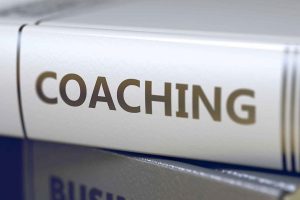For long, people have believed in deconstructive myths about studying. As they are very elaborate, it is easy to let them affect your progress.
In this guide, we will look at seven myths about studying and discuss how you can counter them to learn effectively.
Let’s begin.
Studying for long hours
The myth that studying for more extended hours will help bolster the grades and save time is wrong. Sitting for long hours will cause fatigue and diminish your ability to grasp information.
The brain needs time and rest to retain and fully process a piece of information, especially while studying the CBSE curriculum. One needs to address the topic areas they need to cover and devise a study plan. It can include planning by going through the course material and making an outline on things that are necessary to learn.
If you have a predetermined plan for studying, you will not have to sit for long hours to complete it. Moreover, taking enough breaks between studying will help to bolster the retention power.
Working under pressure – when the due date is tomorrow
Waiting till the last moment to submit an assignment or a test is an overrated excuse practised by students. More importantly, the myth that ‘I work better under pressure’ has surrounded learners’ mindset for a very long time.
We should focus on its impact on the mental health of the students. For instance, procrastination till the last minute may lead to anxiety and deterioration of fitness for the long run. A more disciplined approach towards learning and working on projects will have overarching physical and mental health effects.
Moreover, schools, too, can help with tackling procrastination. The global Indian international school has devised a strategy to enable students to study daily. The method helps keep track of the learning progress and make space of personal time.
Intelligence cannot be taught.
It is untrue and should not be advocated by anyone. Intellect is malleable and can be taught. You have to stop believing that individuals are born with smartness. Sure, there will be few exceptions, but it is not valid.
With school, teacher, peers, and parents’ collective efforts, you can overcome learning difficulties. Each individual acquires information with a different learning method. It can be practical learning or theme-based; the idea is to improve yourself. More importantly, the key is to find a technique that will help you study effectively.
Multitasking is useful
The brain is not designed to focus on multiple things at once, which is something a good number of people fail to understand. Multitasking does seem too good to be accurate and negatively affects the productivity of a student.
People that practice multitasking are slower than individuals who focus on one task at a time. More importantly, it leaves a margin of error. To counter this myth, you can incorporate the Pomodoro method. This method requires you to focus on a single task for 25 minutes and take a break for 5 minutes.
Avoiding making notes
The worst myth of all is avoiding making notes and assuming that you will remember everything after the lecture or studying a topic. The brain is designed to process a piece of information rather than storing it. Believing in such a myth will probably make you forget the critical pointers from the class and leave you with a blank head.
Note-taking helps to retain the studied information and understand it correctly while revising the content. Pointers like mind maps, flow charts, diagrams, etc., are multiple examples of note-making.
Paying too much attention to the physical Space
Dedicated places to study – from the library to cafes or tiniest corners help escape from the usual study area. It has proven to revitalise the creativity and motivation to learn. But, actively seeking such physical spaces to study is a problem.
It will help if you can create a mindset for studying in your usual desk area. Usually, learning for a longer horse in one space makes the learners look for a new space to work. You need to engage yourself in other activities along with studying adequately. Take some time off to engage in some physical activity or step away from the desk.
Associating studying with your age
No age is wrong for studying. With the rapid growth in technological advancement and opportunities, everyone is continuously aiming to be better. Universities and job recruiters want individuals who have a desire to learn.
It is true that young minds learn faster than older students or adults, but they have the upper hand when it comes to acquiring information. Adults have a depth of knowledge, and they can use that to learn new topics or concepts. Beliefs in such a myth drop you in a quagmire of your construct. It is best to avoid it.







